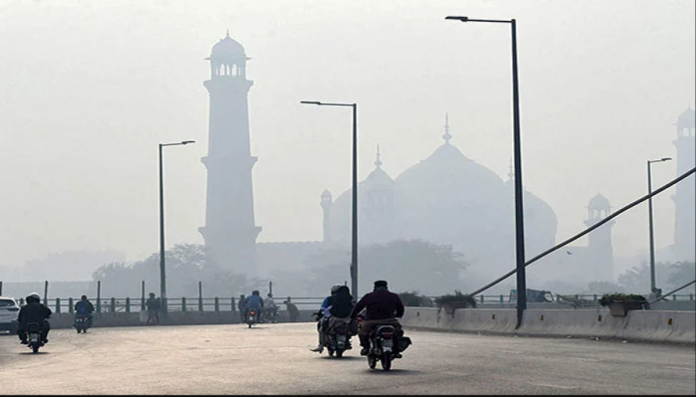Once more, Lahore has claimed the unfortunate title of the world’s most polluted city, registering an alarming average Air Quality Index (AQI) of 397, soaring to 444 in Amir Town. The Pakistan Meteorological Department paints a grim picture, predicting a rain-free next 24 hours, hinting at the persistence of hazardous smog. Health experts are sounding alarms, advising the public to curtail unnecessary travel and don protective face masks when outdoors.
In response to the escalating crisis, the Lahore High Court has taken decisive action. It directed the Punjab government to enforce the closure of all schools and colleges on Saturdays, aiming to protect students from the detrimental effects of the pervasive smog.
Furthermore, the court recommended a two-day remote work arrangement for employers, acknowledging the severity of the situation and the need for immediate intervention.
Taking a stern stance, the court also mandated the removal of the Director General of the Environment Protection Department, signaling a commitment to holding authorities accountable for the environmental crisis.
As Lahore grapples with hazardous air quality, these measures underscore the pressing need for collaborative efforts to address and mitigate the impact of pollution on public health and the environment.


